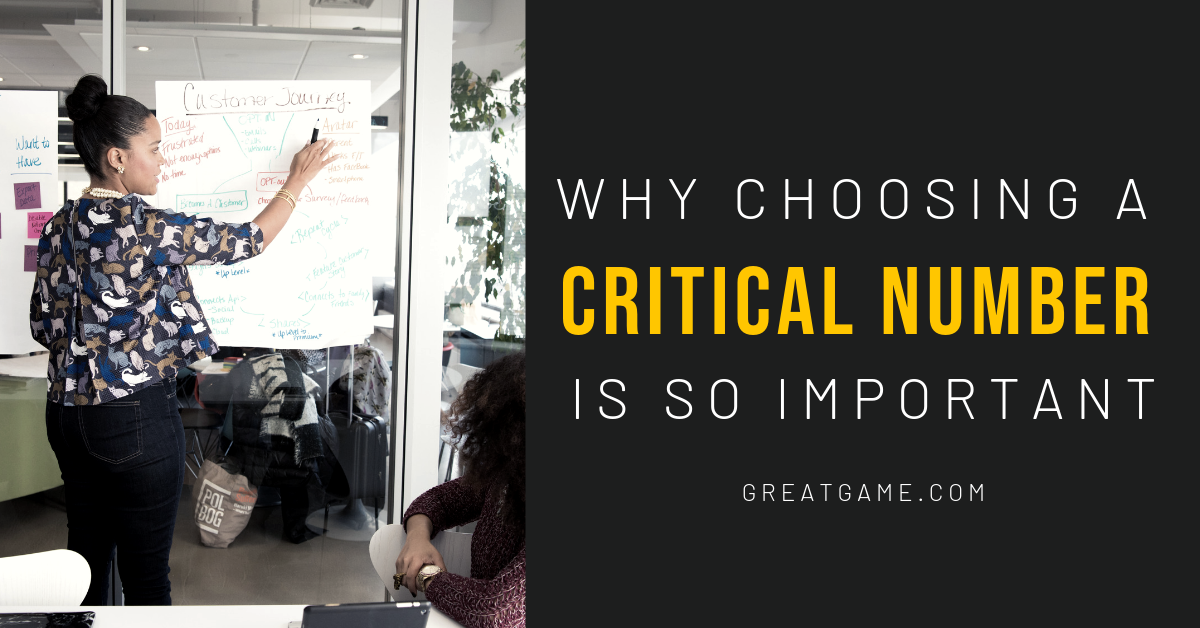You and your team have come up with your Critical Number™: the one metric that represents a weakness or vulnerability that, if not addressed and corrected, will negatively impact the overall performance and long-term security of the business. But now what? How do you successfully start making things happen and impacting that number? With targeted day-to-day improvements that add up to long-term success. MiniGames™are an engaging, short-term activity designed to pursue an opportunity or correct a weakness within a company. They bring a laser focus to those everyday, small wins that put us that much closer to the big win and help drive short-term performance metrics that contribute to a year-end revenue goal or Critical Number. Take this example from Get in the Game. By focusing on something as simple as spoons, the chain reaction resulted in a $1 million impact in revenue in just one year at Kerbey Lane Cafe:
Read More
In an open-book company, communication can make or break the success of your Game. MiniGames™, Huddles, and scoreboards are simply tools that are only as good as the communication and actions you create around them. Check out these tips from Great Game™ Coach, Dave Scholten, about communicating effectively to maximize The Game at your Business.
Read More
Right now, there is at least one financial or operational number in your company, something right at the heart of your business that, if improved in the short term, would have a dramatic effect on your business. Does everyone in your organization know what that number is, and how important that number is to the success of the business? A Critical Number™ is: ‘The One Thing’ that, at any given time, is going to have the greatest impact on your business. ‘The One Thing’ you must achieve – or nothing else you achieve really matters much. ‘The One Thing’ that clearly defines winning! Critical Numbers vary from business to business and industry to industry. They change and evolve over time depending on business conditions and strategic goals. So how do you know what to select?
Read More
Imagine a number, that if identified, would represent the single most important thing in your life; the one thing that would change everything. Whoa. That would indeed be awesome. But there’s more to it than that. There’s myth and magic that surrounds what we call the Critical Number™—that one operational or financial metric that represents a weakness or vulnerability that impacts the long-term security of the business. This clearly defined, company-wide goal will indeed change your business. And yes, it will change your life. But the Critical Number is not magic.
Read More
At any given time in your business, there is one thing, an operational or financial number that represents a weakness or vulnerability that, if not addressed and corrected, will negatively impact the overall performance and long-term security of the business. This one thing is known as your company’s Critical Number™. Ultimately, the Critical Number defines winning. It rallies people around a common goal and directs a focus to what’s most important to the company’s success. From this definition, it’s clear to see why identifying a Critical Number is valuable to your business, but the Critical Number is also very important to your employees. If they do not understand and buy-in to the Critical Number, it is likely that this number will continue to go unnoticed. Here are three key ways the right Critical Number will strengthen your business:
Read More
As a business owner, you know it is important to take the time to assess your strengths, weaknesses, opportunities, and threats (SWOT) to your business in order to set goals and priorities for the upcoming fiscal year. But, how do you know which one thing is the top priority to fix? At Great Game™, we talk a lot about the Critical Number™. By definition, the Critical Number is the operational or financial number that represents a weakness or vulnerability that – if not addressed and corrected – will negatively impact the overall performance and long-term security of the business. Overall, the Critical Number is the heart of The Great Game of Business®. Each of our three fundamental processes (Know & Teach the Rules, Follow the Action & Keep Score and Provide a Stake in the Outcome®) revolves around educating, involving and engaging employees to improve the Critical Number.
Read More
In 1983, International Harvester was in deep financial trouble. Jack Stack and his fellow managers at the company’s engine remanufacturing facility in Springfield, Missouri, were scrambling to protect 119 jobs at the plant. Fast forward 36 years and SRC is struggling to find enough people to sustain the business over the long term.
Read More
Creating an informed and engaged workforce doesn't happen overnight...and isn't sustainable without the dedication and focus of the whole team. To help get your Game off on the right foot in the new year, here's a list of must-know tips from our best blogs to help The Game excel at your company.
Read More
I might have raised a few eyebrows this past September when I gave my speech at the 26th Gathering of Games in Dallas. I talked about how we were now fighting a war for talent and that, thanks to retiring Baby Boomers and a hot economy, we now face a critical shortage of people. Without people, we will not be able to keep growing the business by taking advantage of the opportunities ahead of us. It’s our belief that by the year 2020, the companies with the best people will dominate their markets. In my speech, I explained that the Critical Number™ for our business for 2019 was going to be “people.” I thought that some members of the audience started to think they were at the wrong conference. (Was this some kind of HR seminar?)
Read More
When the leadership team asked us a year and a half ago to lead Venturity’s Great Game journey, we weren’t sure what to expect. As a group, we all had visions of success, but also threads of trepidation because a lot of the success was riding on our shoulders. This was a huge responsibility and required us to stretch our own leadership and team-building skills. We knew at the beginning that we would be responsible for leading the entire Venturity team in the Great Game of Business® and helping to set and continue the overall direction. We spent hours every week in those initial months understanding the Great Game and creating it for Venturity. What we didn’t realize at the time was the powerful impact the Great Game of Business would have on the culture of our organization overall, and how this would translate into much more than financial success.
Read More

.png)















.png)




-5.png)

